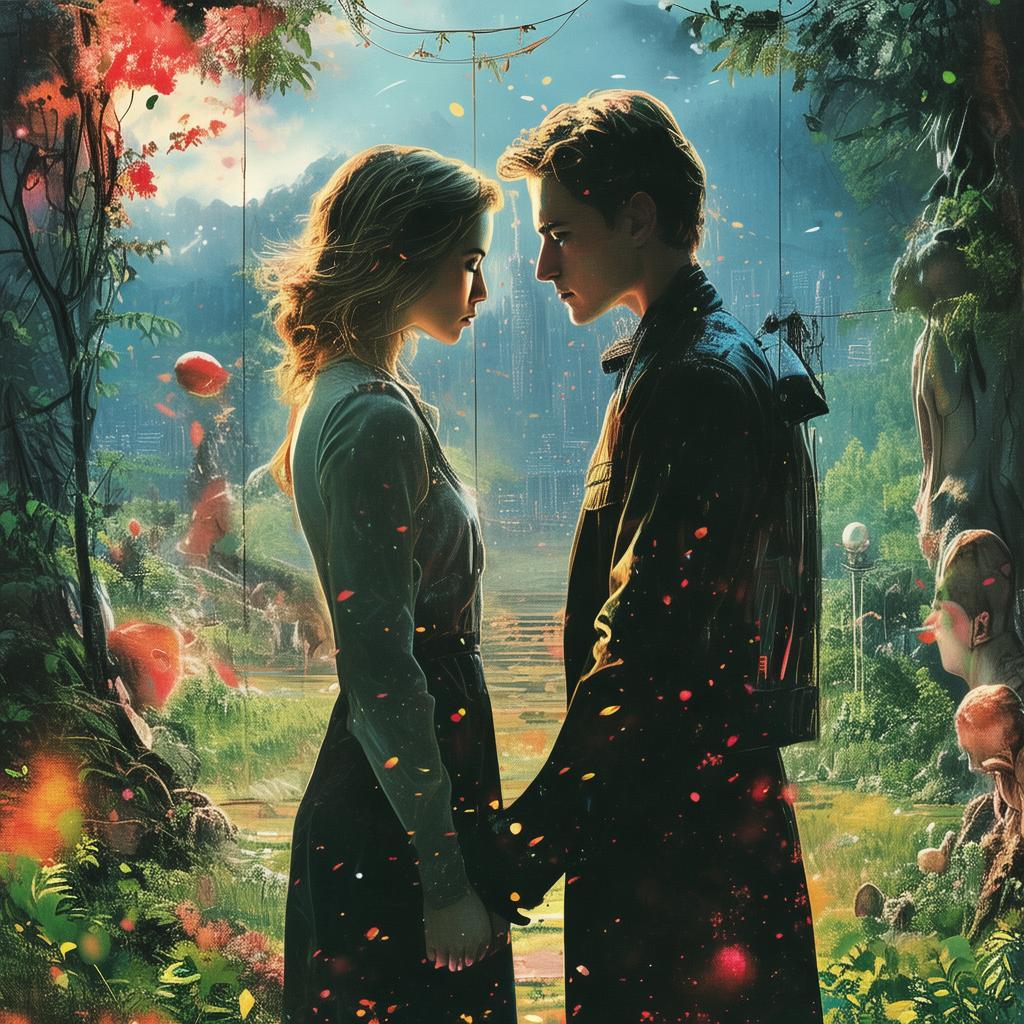The Strings of Fate: A Violinist's Love and a Daughter's Discovery
In the heart of a bustling city, nestled between the towering skyscrapers and the whispering canals, there lived a young violinist named Yilan. Her fingers danced across the strings of her mother's old violin, each note a testament to the love that had once filled their home. Yilan's life was a melody of her own creation, but as she grew older, she found herself drawn to the shadows of her past, to the story of the violin that had been her mother's companion through thick and thin.
One rainy afternoon, as the city was enveloped in a shroud of gray, Yilan stumbled upon an old, leather-bound journal hidden beneath the floorboards of her grandmother's attic. The pages were yellowed with age, but the words were as sharp as the day they were written. The journal belonged to her mother, and it was filled with tales of love, betrayal, and a violin that had been the linchpin of her mother's life.

The story began with a young woman named Mei, a violinist with a voice as powerful as the music she played. Mei's life was a tapestry of passion and dreams, but it was her love for her daughter, Yilan, that would define her destiny. Mei had met her husband, a wealthy businessman, under the glow of the stage lights. Their love was a symphony of fireworks, but as the years passed, the music grew discordant.
Mei's husband was a man of many secrets, and one of them was a rival violinist named Chen, who had once been Mei's mentor and confidant. Chen's jealousy had festered into a consuming passion for Mei, and he was willing to do anything to possess her. When Mei discovered her husband's affair with Chen, her world shattered into a thousand pieces.
In a fit of rage, Mei's husband had thrown her out into the cold, leaving her with nothing but the violin that had been her life's companion. It was a violin that had been passed down through generations, each note imbued with the memories of those who had played it before. With the violin as her only solace, Mei wandered the streets of the city, her heart heavy with sorrow and her spirit broken.
It was during this time that she met a young man named Wei, a street musician who played the cello. Wei's music was a gentle stream that soothed Mei's aching soul, and in him, she found a kindred spirit. Together, they formed a duet that captivated the city, their music a testament to the power of love and the resilience of the human spirit.
But as the years passed, Wei's own past caught up with him, and he was forced to leave Mei. Heartbroken, Mei returned to the violin, her music a reflection of her love for Wei and the hope that one day they might be reunited. She played until her fingers were calloused, until her heart was a hollow shell, and then she passed the violin to her daughter, Yilan.
Yilan, now a young violinist in her own right, felt the weight of her mother's story as she played the violin. She knew the music was more than just notes on a page; it was a bridge to her mother's past, a connection to the love that had once filled their home. As she played, she felt a strange pull, as if the violin was calling out to her, urging her to uncover the truth of her mother's past.
Determined to find out what had happened to her mother, Yilan began to piece together the puzzle. She discovered that Chen had not only been her mother's rival but also the man who had killed her father. The revelation was a shock, but it also explained the pain that had etched itself into her mother's soul.
Yilan's journey led her to Chen, now an old man living in a small, cluttered apartment. He was a broken man, his violin a relic of a bygone era. As Yilan sat with him, she listened to his story, a story of love and loss, of jealousy and regret. In Chen, she found a mirror to her mother's pain, and in him, she found the courage to confront her own.
The climax of Yilan's journey came when she played the violin for Chen, her fingers moving with the grace of a seasoned maestro. As she played, she shared her mother's story, her own story, and the story of the violin that had been the linchpin of their lives. Chen listened, his eyes filled with tears, and for the first time in years, he felt a sense of peace.
In the end, Yilan learned that love is not just about the present; it is about the past and the future. It is about the connections we make, the memories we create, and the legacies we leave behind. The violin, once a symbol of her mother's pain, became a symbol of their love, a love that transcended time and space.
As Yilan played the final note, the rain stopped, and the sun broke through the clouds, casting a warm glow over the city. She looked down at the violin, its strings still resonating with the music of her mother's love, and she knew that she had found her own voice, her own story, and her own place in the world.
The Strings of Fate: A Violinist's Love and a Daughter's Discovery is a story of love, loss, and redemption, a tale that will resonate with readers long after the final note has been played.
✨ Original Statement ✨
All articles published on this website (including but not limited to text, images, videos, and other content) are original or authorized for reposting and are protected by relevant laws. Without the explicit written permission of this website, no individual or organization may copy, modify, repost, or use the content for commercial purposes.
If you need to quote or cooperate, please contact this site for authorization. We reserve the right to pursue legal responsibility for any unauthorized use.
Hereby declared.









